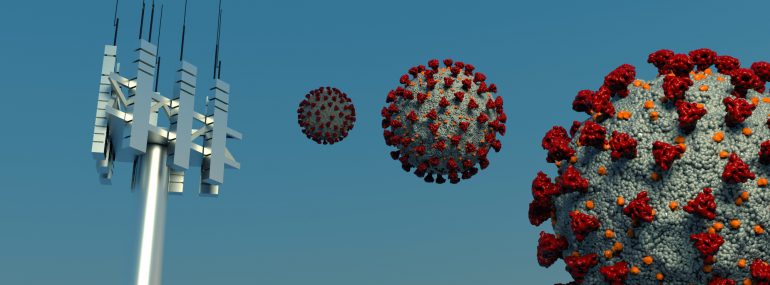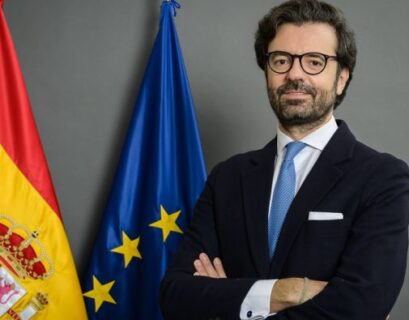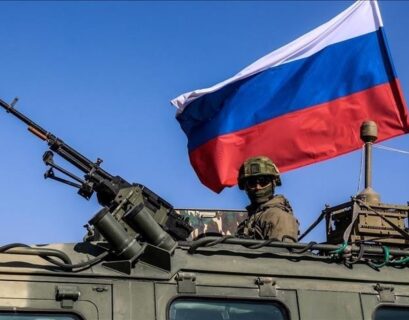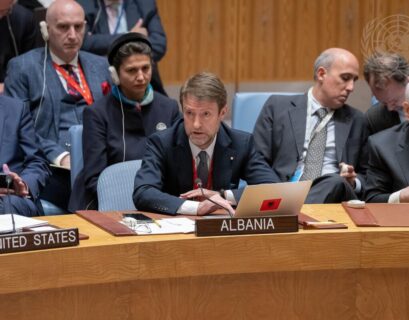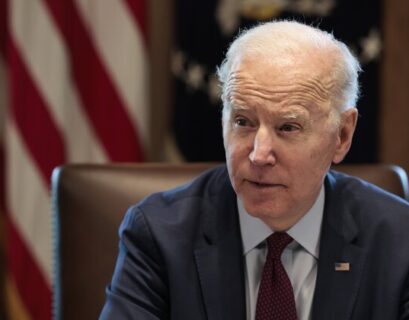KRISTINA LANI
While COVID-19 quickly spread around the globe and the term ‘pandemic’ opened news programs ranging from CNN to small local stations in virtually every town, citizens soon understood that, besides the unknown threatening virus, they had to face another ‘virus’, that of fake news, disinformation and conspiracy theories. Thus, along with the term ‘pandemic’, the World Health Organization coined the new term, ‘infodemics’.
On the other hand, locked in their homes, politicians, journalists, researchers and strategists reflected and still continue to reflect on what impact the pandemic has on the current world, but also on our future. The concern on how the pandemic will reconfigure international relations and the current world order led to the term ‘geopolitics of pandemics’ to become another buzzword in this context.
Both these aspects, infodemics and coronavirus geopolitics, affected the Balkans and Albania and became objects of debate and discussion, oftentimes heated. These are two aspects this essay wants to examine. First, the reach of disinformation and conspiracy theories in a country as small as Albania is worth analyzing. Second, but not any less important, are the geopolitical games ongoing in the Balkans as a result of this crisis.
Conspiracy theories have always been present among us in order to explain what was deemed to be ‘unexplainable’; however, COVID-19 has brought them to the forefront with such a magnitude that one could not help but wonder what was real news and what was not. While practically every country has dealt with its own issues in reporting numbers of infections and deaths (understandable, due to different methods of testing and other causes of death exacerbated by the coronavirus), we have also had to face the rise of rather odd theories about the origins, spread, and cure of COVID-19. Disinformation, on the other hand, has never been stronger.
The European External Action Service’s report on COVID-19 related disinformation in Europe, including in the Balkans, was widely cited in Albanian media outlets. Interestingly, however, Albania was subject to the least amount of pro-Russian and pro-Chinese disinformation when compared to other European countries, even within the Western Balkans, as per the EEAS report.
In any case, it should be said that a part of Albanian media were not able to avoid what was deemed the Chinese propagandistic offensive towards the world, in order to present itself as the model to face COVID-19, which for some also market the triumph of the Chinese authoritarian model over the Western liberal model. Likewise, there has not been a lack of publications by RT or Sputnik, which echo fake news and conspiracies according to which COVID-19 was created in American laboratories, and especially what Kremlin propaganda considers as the failure of Western countries to face the pandemic. Furthermore, the numerous publications that present Turkey as the best model when facing the crisis at the global level have also been present in Albanian media. Finally, Iranian sources and anti-Western conspiracies coming from Tehran have not been absent either, having been published in a small number of portals and then spread through social media.
It may not be a mistake to say that there is a clear link between disinformation sources, who, as a rule, are from those countries considered as ‘third actors’ in the Balkans, and regional geopolitics, which currently presents a clash between these ‘third actors’ and the democratic West in our region. Nevertheless, it should be highlighted that it would be a mistake to reduce the infodemic phenomenon solely as a threat coming from third actors. Fake news and disinformation factories (as will be seen below) work at a high rate of productivity even in the West, from the U.S. to France, from Italy to Germany, where radical extremist groups spread conspiracy theories that reach our soil.
One of the main conspiracy theories around COVID-19 has been the purported link between 5G technology and the spread of the virus. According to the proponents of this theory, there are several possible links: COVID-19 is masking the health risks that 5G technology presents; 5G networks weaken immune systems; or the coronavirus is using network waves to communicate with and choose its victims.
Another conspiracy theory that reverberated in Albanian media was the “Bill Gates ploy”. Doctors Shiva Ayyadurai and Rashid Buttar, most notably, spread the theory that the ‘Deep State’, which allegedly includes the Bill and Melinda Gates Foundation, Mark Zuckerberg, Hilary Clinton, and even Anthony Fauci, head of the National Institute of Allergy and Infectious Diseases (NIAID), himself, is plotting with United Nations elites in order to instill fear towards the virus, destroy the global economy, and promote Big Pharma. This goes hand-in-hand with another theory, which says that Bill Gates, being the second largest benefactor for the World Health Organization, has an interest in pushing for a vaccination agenda in order to achieve population control through the implantation of a microchip-like-vaccine.
The US-China blame game on the issue of how the virus was first spread did not go unnoticed by Albanian media either. The mutual accusations of creating a biological weapon between the two superpowers were also echoed by Iranian news republished in the media. Iran joined Russia and China in the allegations that the US created the virus to use as a bio-weapon against these states.
Furthermore, there have been conspiracy theories originating from the other side of the Adriatic Sea, where the virus most affected Europe. A story that first appeared in Italian television in 2015, in TV program TGR Leonardo, rapidly circulated among both Italian and Albanian media. The story presented a ‘supervirus’ “which was being created by Chinese scientists, would largely affect the lungs, and was being generated through the crossing of the SARS virus and bat and mice cells.” The video story was debunked by Italian daily La Repubblica, but that did not stop it from circulating, even being referenced by former Vice-Prime Minister Matteo Salvini.
While the conspiracy theories above have been imported from Western media, there has not been a lack of local theories. An Albanian doctor of main Tirana hospital stated on a Facebook post that the Chernobyl Exclusion Zone wildfires of April 2020 were not accidental, arguing that the fire raised radioactivity levels. Radioactivity has been proven to destroy viruses, and the doctor’s argument follows that the fires may have been set deliberately to prevent the virus from spreading, which could explain the low number of infections in Eastern Europe, and, more generally, the areas that were affected in the 1986 Chernobyl disaster. Another explanation comes from conspiracy theorist Alfred Cako, who declared that COVID-19 is a biological weapon spread by the “White Brotherhood”, a result of a battle between US President Donald Trump and the Illuminati. He was the organizer of two protests in the capital against mandatory vaccination for COVID-19.
Disinformation and conspiracy theories related to the pandemic are neither a new nor a passing phenomenon. They are part of the post-truth era we are living in. Their impact in the democratic process is serious. As Florian Bieber writes, “conspiracy theories are poisonous for democracies, as they both thrive on weak trust and a sense of powerlessness and reinforce it…” In this sense, “the pandemic might very well strengthen politics of fear, paranoia, and distrust to the severe disadvantage of democracy, including those in the Western Balkans.”
***
While the disinformation and conspiracy theories surrounding COVID-19 are an impactful phenomenon that consolidated itself with the outbreak of this pandemic, its implications are far larger than just ‘fake news’ versus ‘real news’.
The already tense relations between the US and China have been exacerbated by the mutual accusations explained above. Scholars are now talking of a Second Cold War with the two powers in the center. However, in reality, the geopolitical situation is much more complicated, and the Western Balkans are the prime example to illustrate this.
An important geopolitical act that occurred in the middle of the pandemic was the European Union’s decision, in the virtual Zagreb Summit, to give the green light to the opening of accession negotiations to Albania and North Macedonia. Ursula van der Leyen’s “geopolitical commission”, as she has coined it herself, thus gave proof that Europe is acting geopolitically by seeing the Balkans as its area of influence, which is also in accordance with the public’s aspirations in these countries, first and foremost in Albania. Now, the ball is in Albania’s court to further advance in enforcing the demanded conditions for accession.
Coronavirus pandemics can be somewhat considered a litmus test for Balkan countries. The first and most visible geopolitical effect of the pandemic was the ‘address’ Balkan countries first headed to in order to ask for help, or how they reacted to the aid offered by various countries. As rightly observed by regional politics observers in the Balkans, the already clear lines that divide influence areas for extra-Balkan actors have been further demarcated.
Albania looked at the European Union for help and was supported by Brussels. Likewise, the pandemic period further consolidated the Rome-Tirana axis, particularly reflected by Albania’s sending of 90 doctors and nurses to help neighboring Italy. The United States also offered aid and assistance to Albania. In a sense, it can be said that the pandemic proved Albania’s Western orientation even more clearly.
On the other hand, Serbia used the pandemic to continue its power games between the EU, Russia, and China. Serbian President Aleksandar Vucic was swift in announcing that “EU solidarity is dead” after the EU’s decision on March 15th to halt the export of medical supplies outside the EU. A few days after Vucic personally travelled to the Belgrade airport to receive Chinese aid. The streets of the Serbian capital were filled with banners reading “Thank you, Brother Xi.” Chinese “mask diplomacy” on the one hand and the Serbian policy of “multiple chairs” were thus in complete unison.
The Balkans could not be an exception from what can be considered “pandemic nationalism,” which was reflected by the fast closing of borders and the search for solutions within the walls of the house. While there was the occasional episode or gesture of cooperation or regional solidarity, such as Serbia’s gift of 1000 medical kits to Kosovo, generally, the Balkans failed to act as a region. Regional solidarity was absent; regional cooperation inexistent. Even the border between Albania and Kosovo became completely impenetrable.
Along with indicating once again the different strategic orientations of the region’s countries, the pandemic also evidenced the fragility and vulnerability of each Balkan country in its entirety. Balkan democracies were fragile in the first place, but the pandemic froze them to a certain extent. Pandemic populism was popular in its first phase, but resulted not as popular in the long term. The fear of a pandemic-propelled inertia in Balkan hybrid systems is not as baseless as one might think. Viruses have the capacity to resist longer than we think.
KRISTINA LANI holds a MA in International Relations from Utrecht University.


